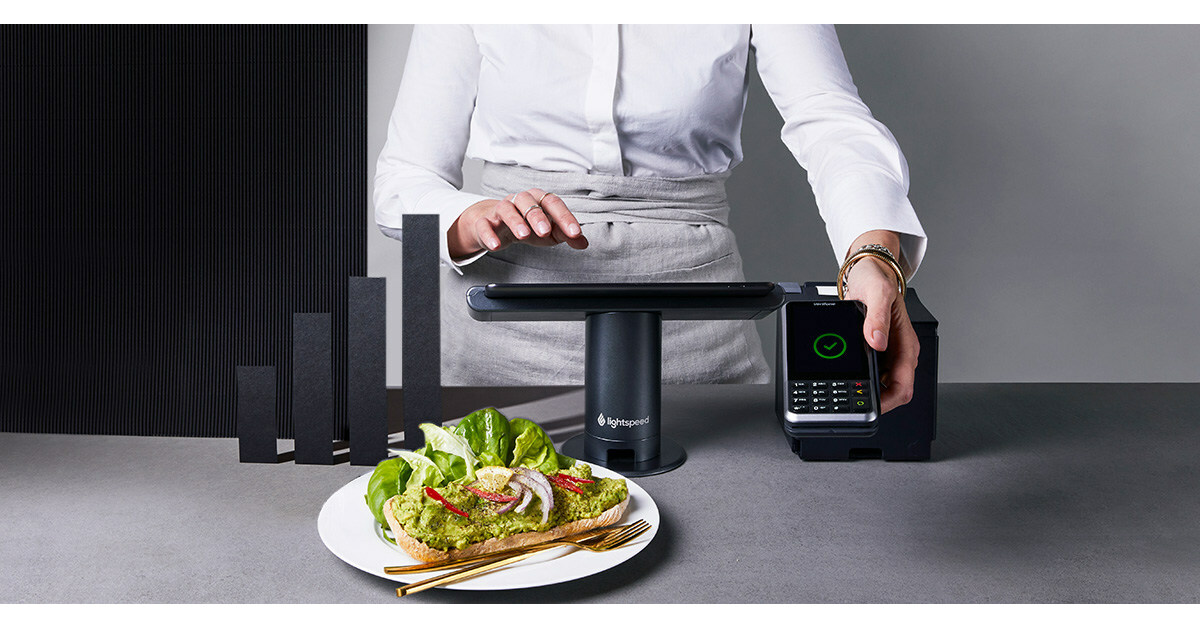
Hospitality Businesses are Turning to Technology to do Better with Less Amidst Labour Shortages and Economic Uncertainty
Lightspeed’s 2022 Global State of the Hospitality Industry report reveals that hospitality businesses are implementing automation to save time and streamline operations while navigating the challenges and trends of the industry
MONTREAL, Jan. 31, 2023 /PRNewswire/ – Lightspeed Commerce Inc. (NYSE: LSPD) (TSX: LSPD), the one-stop commerce platform for merchants around the world to simplify, scale, and create exceptional customer experiences, today released its 2022 Global State of the Hospitality Industry report. Lightspeed surveyed 1,100 hospitality owners, managers and operators, and 7,000 consumers from the United States, Canada, Australia, UK, France, Germany and the Netherlands, to get a pulse on challenges and trends across regions, gather insight into customer experience and expectations, and identify how industry leaders around the globe are navigating modern challenges and trends.
As restaurateurs around the world are grappling with high inflation rates, staff shortages, and overall economic uncertainty, technology seems to be a key tool in battling macroeconomic conditions. The ability for hospitality operators to do more with less is essential, with survey results noting a majority of industry respondents credit the adoption of a POS or restaurant management software to streamlining shifts, including new or expanded online ordering systems or the use of new technology to automate tasks.
“Digital adoption has been an important lifeline for hospitality businesses and it’s clear there are greater efficiencies to be realized with new technology,” said Peter Dougherty, GM of Hospitality at Lightspeed. “Our goal is to partner with our customers, sharing reliable insights at every level, from industry, regional, the customer perspective, right down to what is performing best on the menu. Our flagship hospitality product, Lightspeed Restaurant, is an easy-to-use, omnichannel solution that uses data to deliver actionable insights to restaurant operators, helping them make smarter decisions about their business.”
Top challenges
The rising cost of food and supplies is among the top obstacles that hospitality businesses are facing, with 37{60d48124524c163d93bcaf9d238c122260f539381ea62c0bffb11c8cd8c23591} of restaurant owners surveyed indicating this as their biggest challenge. While it can be daunting to raise menu prices (for fear of losing customers), more than half (61{60d48124524c163d93bcaf9d238c122260f539381ea62c0bffb11c8cd8c23591}) of restaurateurs indicated this is how they are combating inflation.
Restaurants like Kotsu Ramen and Gyoza, in California, were hesitant to increase their prices, but ultimately decided it was a necessary change. According to Chief Concept Officer, Grant Macdonald, the move to increase pricing ended up being beneficial in many ways.
“There’s a sense that guests are incredibly price sensitive, and we’ve been actually very nervous about being able to move our pricing up,” said Grant. “In some ways, inflation has given us the opportunity to finally make some price changes that were necessary and move into new price points that really needed to happen.”
While inflation appears to be the dominating issue, followed closely by hiring new staff (23{60d48124524c163d93bcaf9d238c122260f539381ea62c0bffb11c8cd8c23591}) and staff retention (11{60d48124524c163d93bcaf9d238c122260f539381ea62c0bffb11c8cd8c23591}), sustainability has become an emerging consideration that cannot be ignored. Nearly half (47{60d48124524c163d93bcaf9d238c122260f539381ea62c0bffb11c8cd8c23591}) of hospitality owners surveyed by Lightspeed agree that implementing environmentally friendly initiatives will attract more customers.
Industry tactics to combat current challenges
Lightspeed surveyed 1,100 restaurateurs and 7,000 consumers globally with OnePoll in 2022 (from September to October 2022). Industry respondents noted the following tactics to combat current challenges:
- 57{60d48124524c163d93bcaf9d238c122260f539381ea62c0bffb11c8cd8c23591} of respondents agreed that new technology adoption over the past two years has been critical to their business’ survival.
- 42{60d48124524c163d93bcaf9d238c122260f539381ea62c0bffb11c8cd8c23591} of operators improved food costing and inventory practices to ensure they are spending correctly and wasting less.
- Almost a third of business owners (30{60d48124524c163d93bcaf9d238c122260f539381ea62c0bffb11c8cd8c23591}) are limiting the number of days and/or hours of operation, especially in slower months, to help offset costs due to inflation while also preventing burnout when working with an understaffed crew.
- Nearly a quarter (21{60d48124524c163d93bcaf9d238c122260f539381ea62c0bffb11c8cd8c23591}) brought online ordering in-house to avoid third-party fees.
- 60{60d48124524c163d93bcaf9d238c122260f539381ea62c0bffb11c8cd8c23591} of restaurateurs agreed that inventory data (stock levels, waste) are important to them and 40{60d48124524c163d93bcaf9d238c122260f539381ea62c0bffb11c8cd8c23591} said they have already adopted inventory practices to work more efficiently and to reduce food waste.
- 43{60d48124524c163d93bcaf9d238c122260f539381ea62c0bffb11c8cd8c23591} of restaurateurs are operating with less staff.
- To ramp up sustainability, 39{60d48124524c163d93bcaf9d238c122260f539381ea62c0bffb11c8cd8c23591} are offering more vegan options, whilst 37{60d48124524c163d93bcaf9d238c122260f539381ea62c0bffb11c8cd8c23591} are adopting a food waste policy.
Industry trends have shifted since last year
- When asked what technology improved business the most this year, 12{60d48124524c163d93bcaf9d238c122260f539381ea62c0bffb11c8cd8c23591} of industry respondents said they adopted new technology to streamline employee shifts (new POS or management software), which is an increase of 7{60d48124524c163d93bcaf9d238c122260f539381ea62c0bffb11c8cd8c23591} compared to 2021.
- Overall, beverage (both alcohol and non-alcoholic) sales saw the biggest increase from 2021, due to the return of in-house dining. Other climbers like small plates, dessert, and breakfast have also increased in 2022.
- Thanks to the return of in-house dining, return restaurants seem to be growing their menu sizes after paring them down over the past two years.
- Inflation appears to be negatively impacting consumers’ spending habits, forcing them to rethink and more tightly control their spending. While dining out is an established habit and there is still a desire to support local restaurants, half of the consumers surveyed said they would go there less often for economic reasons. The same goes for home delivery, which is also used less by 48 percent of respondents.
Download the full Lightspeed Global Hospitality Industry Report here.
About Lightspeed
Powering the businesses that are the backbone of the global economy, Lightspeed’s one-stop commerce platform helps merchants innovate to simplify, scale, and provide exceptional customer experiences. Our cloud commerce solution transforms and unifies online and physical operations, multichannel sales, expansion to new locations, global payments, financial solutions, and connection to supplier networks.
Founded in Montréal, Canada in 2005, Lightspeed is dual-listed on the New York Stock Exchange (NYSE: LSPD) and Toronto Stock Exchange (TSX: LSPD). With teams across North America, Europe, and Asia Pacific, the company serves retail, hospitality, and golf businesses in over 100 countries.
For more information, see lightspeedhq.com
On social media: LinkedIn, Facebook, Instagram, YouTube, and Twitter
Forward-Looking Statements
This news release may include forward-looking information and forward-looking statements within the meaning of applicable securities laws (“forward-looking statements”). Forward-looking statements are statements that are predictive in nature, depend upon or refer to future events or conditions and are identified by words such as “will”, “expects”, “anticipates”, “intends”, “plans”, “believes”, “estimates” or similar expressions concerning matters that are not historical facts. Such statements are based on current expectations of Lightspeed’s management and inherently involve numerous risks and uncertainties, known and unknown, including economic factors. A number of risks, uncertainties and other factors may cause actual results to differ materially from the forward-looking statements contained in this news release, including, among other factors, those risk factors identified in our most recent Management’s Discussion and Analysis of Financial Condition and Results of Operations, under “Risk Factors” in our most recent Annual Information Form, and in our other filings with the Canadian securities regulatory authorities and the U.S. Securities and Exchange Commission, all of which are available under our profile on SEDAR at www.sedar.com and on EDGAR at www.sec.gov. Readers are cautioned to consider these and other factors carefully when making decisions with respect to Lightspeed’s subordinate voting shares and not to place undue reliance on forward-looking statements. Forward-looking statements contained in this news release are not guarantees of future performance and, while forward-looking statements are based on certain assumptions that Lightspeed considers reasonable, actual events and results could differ materially from those expressed or implied by forward-looking statements made by Lightspeed. Except as may be expressly required by applicable law, Lightspeed does not undertake any obligation to update publicly or revise any such forward-looking statements, whether as a result of new information, future events or otherwise.
SOURCE Lightspeed Commerce Inc.

